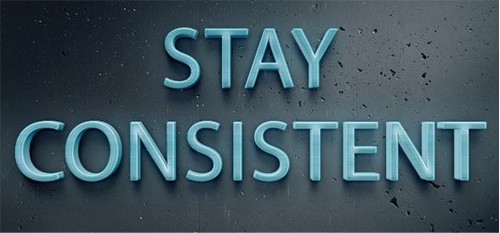A recent study has shown that a vast majority of businesses fail due to the lack of a proper business plan. The business plan can you help arrive at the proper objectives for your business. Of course, having a complete overview of the business may be a difficult task, especially when you are still planning your business.
So what is a business plan and what objectives of an organization does it serve? We will attempt in helping you understand the concept better.
Table of Contents
What is a Business Plan?
Any business plan has two purposes to serve. To begin with, it helps you run your business with a cohesive vision based on where you would want to see the business in a year from now. It serves as a roadmap to achieve the business goals you have set for yourself.
Another purpose that you need to have a business plan is to show to the financial institutions and banks that you have access to the business roadmap. Banks want to make sure that you have a clear vision for developing your business ahead so that their risk factors are mitigated to a greater extent.
Are you maximizing the potential of your business plan?
Practical Advice: When it comes to crafting an effective business plan, it’s critical to ensure you’re leveraging the latest project management tools available. Tools like Trello, Asana, and Monday.com have been widely adopted for streamlining operations and maintaining clarity in the execution of business strategies. Whether you’re a startup or an established company, these platforms can help you stay organized and on top of key milestones, ensuring your business objectives are met efficiently (source: Business Insider, 2023).
Quick Statistics: According to a 2022 survey by the U.S. Small Business Administration, 78% of small business owners who regularly updated their business plans reported higher success rates than those who did not. This underscores the importance of continuously revising your business plan to reflect changing market conditions and internal company dynamics. By adapting to new trends and data, businesses can maintain a competitive edge and achieve long-term sustainability (source: U.S. Small Business Administration, 2022).
Objectives of Business Plan
The major objectives that a business Plan looks to achieve include the following elements.
1) Dedicating enough time for planning
A workable business plan cannot be created overnight. It is bound to take its own time to develop. So, a perfect business plan will attempt to spend enough time and hard work to achieve successful implementation. This should be one of the crucial stages in a business plan.
A complete analysis of the current situation is the key to evolving plans. Review the situation through brainstorming and other techniques to define the goals.
2) Create goals and objectives
An organization depends heavily on the business plan to arrive at the description of business it performs. There are several areas that a company will focus on if it wants to realize its objectives, understand the market that it is planned to operate in and the strategy to achieve the goals.
Lack of a business plan will leave the management without any means to check out the theories on how to operate the business. In essence, a business plan will help a company to test different methods in reaching the best standards and policies.
3) Evaluating performance
A business needs proper planning and control over the activities for enhanced performance. It will be an essential step towards achieving the long term survival of the organization as a whole. The business plan also comes with a financial part to it and used for comparing the actual performance with the estimated one.
The ability and provision for such a control and evaluation procedure are what offers you a great advantage in checking the success of the operations. This way, you will be able to detect issues like production or delivery delays, or even increasing production costs.
4) Gauging business strategy and applying due correction
A Business plan is what would assist you in assessing the efficiency of your strategies for achieving business goals. In an ideal condition, a business needs to have the planned results with which the actual results can be compared, and the way forward is decided.
If any of the strategies are found to be unsuccessful in achieving the relevant results, it may be a perfect idea to ditch the strategy or take corrective actions. It is wise to have a good business plan so that the management does have a reference with which it can have a healthy comparison of the actual result achieved.
5) Arranging financial resources
A business plan can be much helpful and instrumental in acquiring adequate business financing. Like we stated already, banks and lenders look for a proper business plan before lending you any sort of finance.
A business plan should be prepared in such a manner that the banks will have a clear understanding of the business perspective that the owner has. The lenders will be able to get to the root of the actual vision shared by the promoters and the methods of operation that will be employed.
Being financially viable is one of the prime objectives of a good business plan.
6) Stay consistent
This should be yet another objective that a business plan needs to be focussed with is being consistent. A good business plan should place proper value on the exact process and its adherence to the planned goals.
Sticking to a consistent schedule will work wonders in achieving the planned goals effectively. This will also help the employees and other staff to fall into a proper routine. This will help the concept of planning to be a part of your business culture.
7) Keep your goals ’SMART’
No, we are not referring to SMART as in the word intelligent. We mean your goals in the business plan should be S-M-A-R-R-T ( Specific, Measurable, Actionable, Realistic, and Time-Bound) to achieve success.
This will help you achieve the business goals as laid out in the business plan effectively and efficiently. It would be practical to have your team member analyze the goals set so that you will get back to a realistic approach.
8) Performing SWOT Analysis
SWOT Analysis is one of the best options you would want to go with when it comes to focus on an effective business plan. Having perfect knowledge of the strengths and weaknesses of your organization helps you come up with a better insight into the realistic goals.
The SWOT analysis also takes into account the opportunities and threats that the organization can come to face to face. This will assist you to focus on the positive factor and take corrective actions against the negatives.
9) Marketing Analysis
Marketing forms an integral part of a business and so does with the business plan. This part of the business plan should be focussed on determining the potential of your product or service while letting the business owners know more about future customers.
The marketing analysis part of the business plan should ideally provide you with a means of understanding your industry as a whole.
In Conclusion
In essence, a perfect business plan is what would help you configure your business in a more positive manner. It would help you foresee the unforeseen circumstances and take corrective action even before you face the situation in actual.
It takes into account the strategy on how to run the business along with the possible risk factors associated and the marketing avenues available in the long run.
Liked this post? Check out the complete series on Business




Thanks
Thankful keep on helping me